Sayer Ji
Aug 24, 2025
Read, share, and comment on the X post dedicated to this article here: https://x.com/sayerjigmi/status/1959819318293569960
“Cherry picking" has become the weapon of choice against anyone who dares highlight evidence favoring natural medicine. But while McGill, Wikipedia, and CCDH fixate on the studies we select, they ignore the more sinister reality: the pharmaceutical establishment has engineered the entire orchard to yield only cherries—and even then, it buries half the harvest.
Architecture of Accusation
The charge arrives with ritualistic predictability. Whenever natural health advocates present peer-reviewed research supporting botanical medicines, nutritional interventions, lifestyle modifications, or question vaccine or drug safety or efficacy, the response is swift and dismissive: "Cherry picking!"
Jonathan Jarry of McGill University's Office for Science and Society delivered this verdict with particular venom, branding GreenMedInfo "a colossal exercise in cherry picking."¹ Wikipedia editors dutifully echoed the sentiment.² The Center for Countering Digital Hate elevated it to institutional doctrine, placing me among their infamous (and arguably honorific) "Disinformation Dozen."³
But projection has a curious way of revealing itself. The more forcefully an accusation is made, the more likely it reflects the accuser's own practices. And in this case, the cherry-picking charge represents perhaps the most breathtaking example of psychological projection in modern intellectual discourse.
The critics who wield this accusation have engineered a system so thoroughly corrupted by selective bias that calling it "cherry picking" understates the crime. They have not merely picked cherries—they have planted exclusively cherry orchards, burned alternative crops, and hired armed guards to ensure no other fruit ever reaches market.
Two Orchards: A Tale of Intentional Bias
To understand the depth of this deception, we must distinguish between two fundamentally different approaches to evidence curation.
The Transparent Garden: GreenMedInfo's Acknowledged Bias
The first type of cherry picking is what GreenMedInfo practices—and openly acknowledges. We walk into the vast orchard of biomedical literature and select studies that highlight natural interventions. Our open-access database of over 100,000 peer-reviewed abstracts explicitly focuses on research demonstrating the therapeutic potential of foods, herbs, nutrients, and lifestyle modifications. Additionally, we index underreported and often suppressed research on the unintended adverse effects of conventional medical interventions—knowledge without which truly informed medical choice would be impossible.
This bias is methodological, declared, and necessary. When the mainstream medical literature systematically ignores or marginalizes research on natural therapies—despite their millennia of traditional use and growing scientific validation—someone must curate this neglected evidence. We do not claim neutrality; we claim balance.
Consider the asymmetry: PubMed contains millions of studies on pharmaceutical interventions, with entire journals dedicated to drug research, massive conference circuits, and billion-dollar marketing campaigns amplifying positive findings. Meanwhile, research on turmeric's anti-inflammatory properties, vitamin D's immune benefits, or meditation's neurological effects languishes in obscurity, mentioned only in specialized journals with minimal readership.⁴
GreenMedInfo exists to correct this imbalance. We are transparent about our purpose: to serve as a counterweight to an industry that has monopolized not just drug manufacturing, but the very definition of what constitutes legitimate medical evidence.
The Engineered Plantation: Pharma's Systematic Corruption
The second type of cherry picking operates on an entirely different scale. This is not selection from an existing orchard—it is the deliberate cultivation of a monoculture designed to produce only approved varieties of fruit.
The pharmaceutical industry has spent over a century engineering every aspect of medical research to serve its commercial interests:
Financial Architecture: Capital flows almost exclusively toward patentable substances. Natural compounds that cannot be owned receive minimal funding. According to the National Institutes of Health, less than 5% of research grants focus on botanical medicines, despite their widespread use and traditional efficacy.⁵
Institutional Capture: Medical schools receive hundreds of millions from pharmaceutical companies. Harvard Medical School alone has received over $11.5 million from industry sources in recent years.⁶ These financial relationships inevitably influence curriculum, research priorities, and faculty perspectives.
Publication Infrastructure: Major medical journals derive significant revenue from pharmaceutical advertising and industry-sponsored studies. The New England Journal of Medicine, for instance, generates millions annually from drug company ads.⁷ This creates inherent pressure to publish favorable studies while marginalizing critical research.
Regulatory Symbiosis: The FDA operates through user fees paid by pharmaceutical companies—essentially, the regulated parties fund their own regulators.⁸ This creates what economists call "regulatory capture," where agencies serve industry interests rather than public health.
But the corruption goes deeper than mere financial influence. The industry has systematically distorted the epistemological foundations of medical knowledge itself.
The Epistemological Crime: How Evidence Gets Manufactured
Publication Bias: The Great Suppression
The most fundamental distortion involves publication bias—the systematic suppression of negative or null findings. Studies consistently show that trials with positive outcomes are 2-4 times more likely to be published than those with negative results.⁹
This creates a false impression of therapeutic efficacy across entire drug categories. Consider antidepressants: while published studies suggest these medications are highly effective, FDA-obtained data reveals that unpublished negative trials nearly cancel out the positive ones.¹⁰ The public sees only the shiny cherries while the rotten fruit remains hidden.
Dr. Marcia Angell, former editor-in-chief of the New England Journal of Medicine, documented this pattern extensively. In her landmark analysis, she found that pharmaceutical companies routinely:¹¹
Design multiple studies but publish only favorable ones
Terminate trials early when results trend negative
Use statistical manipulation to extract positive results from negative data
Employ ghost writers to craft papers emphasizing benefits while minimizing risks
Threaten academic researchers who attempt to publish unfavorable findings
The Ghost Writer Phenomenon
Perhaps no practice better illustrates the manufactured nature of medical evidence than ghostwriting. Major pharmaceutical companies employ networks of professional writers to draft scientific papers, which are then attributed to prestigious academic physicians who often contribute little beyond their signatures.¹²
Internal documents from litigation have revealed this practice operates on industrial scale. Merck's ADVANTAGE trial generated dozens of ghostwritten papers.¹³ Pfizer's network produced hundreds of articles promoting hormone replacement therapy, even as internal documents showed the company knew of serious cardiovascular risks.¹⁴
These papers aren't obvious advertisements—they mimic legitimate scientific discourse while serving marketing objectives. They cite carefully selected evidence, use sophisticated statistical techniques, and appear in peer-reviewed journals. The average physician has no way to distinguish between genuine research and corporate propaganda.
The Replication Crisis: When Science Becomes Marketing
John Ioannidis's seminal 2005 paper "Why Most Published Research Findings Are False" exposed the statistical manipulation underlying much medical research.¹⁵ His analysis showed that the majority of published findings cannot be replicated—they are false positives generated through methodological bias.
The situation has only worsened since Ioannidis's initial analysis. Multiple large-scale replication efforts have found that fewer than 40% of published medical studies can be successfully reproduced.¹⁶ This isn't mere methodological sloppiness—it represents systematic bias toward publishing dramatic, positive findings regardless of their validity.
As we documented at GreenMedInfo, evidence-based medicine often amounts to little more than a coin flip of certainty.¹⁷ A JAMA review found that millions of medical diagnoses and treatments are not backed by science at all.¹⁸ Often, the best medicine is to do as much nothing as possible—as the medical principle primum non nocere ("first, do no harm") suggests.¹⁹
The Gatekeeping Apparatus: Peer Review as Ideological Control
From Scientific Rigor to Orthodoxy Enforcement
Peer review, ostensibly the gold standard for ensuring scientific quality, has devolved into what might more accurately be called "peer pressure"—a mechanism for enforcing ideological conformity rather than methodological rigor.
Studies challenging pharmaceutical paradigms face systematic discrimination regardless of their methodological quality. Dr. Peter Gøtzsche documented this pattern extensively during his tenure at the Cochrane Collaboration.²⁰ Research questioning vaccine safety, exploring natural therapies, or challenging established treatment protocols encounters obstacles that studies supporting conventional approaches never face.
Reviewers routinely reject papers not for methodological flaws, but for "lack of interest," "insufficient novelty," or "limited clinical relevance"—euphemisms for ideological nonconformity. Meanwhile, studies with obvious methodological problems sail through review if they support profitable interventions.
The Retraction Weapon
When heterodox research occasionally breaks through the peer review barrier, the medical establishment deploys its ultimate weapon: post-publication retraction. Once reserved for cases of fraud or serious error, retractions have become tools of ideological control.²¹
Studies questioning vaccine safety, exploring natural therapies, or challenging pharmaceutical orthodoxy face retraction campaigns that studies supporting conventional treatments never encounter. This pattern has accelerated dramatically in recent years, with retractions increasing by over 1000% since the 1970s.²²
The Lawfare Dimension: Disparity of Arms in Medical Research
Napoleonic Justice in the Laboratory
The pharmaceutical-medical industrial complex has imported into medical research a logic that resembles Napoleonic law more than Anglo-American jurisprudence. In Napoleonic systems, anything not explicitly permitted is forbidden, and defendants must prove their innocence rather than prosecutors proving guilt.
This inverted logic pervades medical regulation:
Pharmaceutical products operate under "innocent until proven guilty" standards. New drugs require only limited safety testing before approval, with post-market surveillance theoretically catching problems later. Even when serious adverse effects emerge, drugs remain available while regulators debate causation.²³
Natural therapies face "guilty until proven innocent" treatment. Despite millennia of traditional use and extensive preliminary research, natural substances cannot make therapeutic claims without undergoing pharmaceutical-style trials costing hundreds of millions of dollars—studies no one has incentive to fund since natural compounds cannot be patented.²⁴
The Asymmetric Battlefield
The disparity of resources is staggering. Major pharmaceutical companies command research budgets exceeding the GDP of small nations. Pfizer alone spends over $8 billion annually on R&D, while the entire NIH budget for complementary and alternative medicine research is roughly $140 million.²⁵
This creates what military strategists call "asymmetric warfare"—conflicts where one side possesses overwhelming resource advantages. Natural medicine researchers cobble together small grants and pilot studies while pharma deploys armies of PhD statisticians, regulatory specialists, and marketing professionals.
The Ultimate Cherry Pick: "Safe and Effective" COVID Propaganda
Manufacturing Consensus Through Selective Evidence
No example better illustrates pharmaceutical cherry picking than the COVID-19 vaccine campaign. From the beginning, authorities proclaimed mRNA injections "safe and effective" based on highly selective evidence presentation.
The clinical trials underlying approval involved carefully chosen populations, limited duration, and surrogate endpoints rather than clinically meaningful outcomes.²⁶ Negative findings were downplayed or ignored:
Serious adverse events in trial participants were dismissed as unrelated to vaccination
The trials were too small and brief to detect rare but serious side effects
Natural immunity was ignored despite robust evidence of its effectiveness
Alternative treatments were systematically suppressed despite promising preliminary data
Meanwhile, dissenting voices faced unprecedented censorship. Social media platforms banned discussions of vaccine hesitancy.²⁷ Medical journals refused to publish studies questioning vaccine safety.²⁸ Physicians lost licenses for questioning official narratives.²
The Mounting Evidence of Harm
Despite this suppression, evidence of vaccine-related injuries has accumulated at an unprecedented scale. As we documented in our comprehensive report "Setting the Record Straight: CCDH Lied, People Died, and the Real Disinformation Agents":³⁰
Over 3,600 published studies now document adverse effects from COVID-19 vaccines³¹
VAERS reports exceed 1.5 million adverse events, including over 35,000 deaths³²
Organizations like React19 document thousands of cases of vaccine-induced injuries³³
Excess mortality in heavily vaccinated countries has reached alarming levels³⁴
Yet public health authorities maintain their "safe and effective" mantra while dismissing this mountain of contrary evidence as coincidence, misattribution, or misinformation.
This represents cherry picking on an unprecedented scale—not merely selecting favorable studies, but suppressing an entire literature of adverse findings while prosecuting those who dare to discuss them.
FOLLOW THE SILENCED WORLD PREMIERE (*FULL FILM*)
“Not since the release of VAXXED have we witnessed a film as powerful, gripping, and heart-rending as Follow the Silenced. This is more than a movie—it is a rallying cry, a searing exposé, and a testament to the unyielding spirit of those who dare to speak truth in the face of institutionalized harm. It illuminates the devastating toll of vaccine injury…
Historical Precedents: A Pattern of Deception
The Tobacco Paradigm
The pharmaceutical industry's tactics mirror those pioneered by the tobacco industry. For decades, cigarette manufacturers:³⁵
Funded studies designed to obscure health risks
Created fake grassroots organizations to promote their products
Attacked scientists who published unfavorable research
Manufactured doubt about established health risks
Captured regulatory agencies through revolving-door employment
The pharmaceutical industry has refined these techniques. While tobacco companies eventually faced legal accountability, pharmaceutical manufacturers enjoy legal immunity through programs like the National Vaccine Injury Compensation Program.³⁶
The Hormone Replacement Therapy Scandal
The Women's Health Initiative study revealed how thoroughly pharmaceutical marketing can distort medical practice. For decades, hormone replacement therapy was promoted as protective against heart disease and osteoporosis based on observational studies and small trials.³⁷
When large-scale randomized trials finally tested these claims, they found the opposite: HRT increased risks of heart disease, stroke, and breast cancer.³⁸ Millions of women had been exposed to serious health risks based on cherry-picked evidence and aggressive marketing.
Internal documents revealed that pharmaceutical companies knew of these risks but continued promoting HRT while funding studies designed to minimize negative findings.³⁹
The Statin Mythology
Perhaps no area illustrates medical cherry picking more clearly than cholesterol-lowering drugs. Statin manufacturers have spent billions creating the impression that these medications prevent heart disease in healthy people.
However, the evidence supporting this claim depends entirely on cherry-picked populations and outcomes:⁴⁰
Absolute risk reductions are typically less than 1%
Studies focus on middle-aged men while extrapolating to women and elderly patients
Cardiovascular endpoints are emphasized while serious side effects are minimized
Natural approaches to cardiovascular health receive minimal research attention
Independent meta-analyses consistently show that statins provide minimal benefit for primary prevention while causing significant adverse effects including muscle damage, cognitive impairment, and increased diabetes risk.⁴¹
The Cholesterol Conspiracy: How Big Pharma's $200 Billion Lie Is Killing Us
Read, comment and share this article on X: https://x.com/sayerjigmi/status/1958232219996065910
The Deeper Epistemological Crisis
The Commodification of Knowledge
The pharmaceutical industry has achieved something unprecedented in human history: the complete commodification of medical knowledge. Information that affects human health and survival is now treated as private property, subject to corporate control and profit maximization.
This represents a fundamental perversion of science's original purpose. Scientific inquiry was meant to expand human understanding and improve the human condition. It has become a tool for extracting wealth while maintaining artificial scarcity of healing knowledge.
Consider the absurdity: compounds that grow freely in nature—turmeric, garlic, medicinal mushrooms—cannot legally claim therapeutic benefits without undergoing studies costing hundreds of millions of dollars. Meanwhile, synthetic molecules with no natural analogs and extensive side effect profiles can be marketed aggressively based on industry-funded trials - like this Deadly Chemo-Drug Which Costs 4,000x More Than Gold.
The Institutionalization of Ignorance
Robert Proctor, a historian of science at Stanford, coined the term "agnotology"—the study of culturally-induced ignorance.⁴² His research reveals how industries systematically manufacture doubt about inconvenient scientific findings.
The pharmaceutical industry has perfected agnotological techniques:
Funding biased research that obscures rather than illuminates
Creating fake controversies about well-established natural therapies
Promoting complex statistical models that obscure simple truths
Emphasizing uncertainty about natural approaches while minimizing uncertainty about pharmaceutical interventions
Attacking the credibility of researchers who produce unfavorable findings
The result is a peculiar form of institutionalized ignorance: the more research that gets published, the less the public understands about health and healing.
The Solution: Reclaiming the Commons of Knowledge
Toward Transparent Science
The solution to medical cherry picking isn't eliminating bias—it's making bias transparent and counterbalancing systematic distortions with open, honest inquiry.
GreenMedInfo serves this function by explicitly acknowledging our focus on natural therapeutics. We don't claim neutrality; we claim necessity. In a landscape dominated by pharmaceutical interests, someone must highlight the evidence they prefer to ignore.
But transparency requires more than acknowledging bias—it demands open access to data, methods, and funding sources. Every study should include:
Complete disclosure of all financial relationships
Public access to raw data and analysis code
Detailed methodology allowing independent replication
Honest discussion of limitations and potential conflicts
Registration of study protocols before data collection begins
Rebuilding Scientific Institutions
Restoring scientific integrity requires rebuilding institutions that serve human health rather than corporate profits. This means:
Academic Independence: Universities must divest from pharmaceutical funding that compromises research integrity. Faculty positions, research priorities, and publication decisions cannot be influenced by industry money.
Journal Reform: Medical journals must become truly independent, funded by subscriptions rather than pharmaceutical advertising. Editorial decisions must be based on scientific merit rather than commercial considerations.
Regulatory Overhaul: Drug approval agencies must be funded by public money rather than industry fees. Regulators should have no financial relationships with companies they oversee.
Open Access Research: All publicly-funded research must be immediately available to the public. Paywalls and proprietary databases that limit access to scientific knowledge must be eliminated. NIH has already made great strides in this direction, last month.
📣 From Censorship to Liberation: NIH Just Made Science Free—Let's Make It Whole Again
July 1, 2025 will be remembered as a landmark moment in the fight for scientific transparency and medical freedom. After decades of embargoes, institutional gatekeeping, and the monetization of public knowledge, the National Institutes of Health (NIH)—the world's largest public funder of biomedical research—has enacted a profound and long-overdue reform:
The Restoration of Natural Medicine
Perhaps most importantly, we must restore natural medicine to its rightful place in the healthcare system. This doesn't mean abandoning modern medical advances—it means integrating the best of traditional wisdom with contemporary scientific understanding.
Natural substances — many of them benign and universally loved foods — with extensive safety profiles and emerging research support should not face the same regulatory barriers as novel synthetic compounds. Traditional healing practices used safely for millennia deserve respect, not dismissal.
This integration requires:
Research funding for natural therapeutics proportional to their use
Educational programs that teach physicians about botanical medicines and lifestyle interventions
Regulatory frameworks appropriate for substances with long safety histories
Public access to information about natural healing approaches
Conclusion: The Truth About Cherry Picking
The cherry-picking accusation reveals more about its makers than its targets. Those who hurl this charge most aggressively are often those who have most thoroughly corrupted the evidence base they claim to protect.
McGill University, funded by pharmaceutical companies, accuses independent researchers of bias, while denying vaccine injuries on behalf of their funders. Wikipedia, edited by anonymous contributors with undisclosed conflicts, claims to represent neutral knowledge. The CCDH, funded by undisclosed sources, brands legitimate scientists as disinformation spreaders.
The pattern is consistent: the most compromised institutions project their own flaws onto their critics.
Meanwhile, the orchard burns. Evidence that could save lives remains buried. Natural therapies with extensive research support are dismissed as pseudoscience. Patients suffer while profits flow
But the truth has a way of breaking through manufactured ignorance. The 36,000+ studies documenting vaccine injuries cannot be indefinitely suppressed. The evidence for natural therapeutics continues mounting despite funding disparities. Independent platforms like GreenMedInfo reach millions of people hungry for honest information.
We stand at a crossroads. We can continue accepting a medical system engineered to serve corporate profits over human health, or we can demand the restoration of science as an open inquiry into truth.
At GreenMedInfo we acknowledge our bias toward natural medicine because someone must counterbalance an industry that has spent over a century perfecting the art of selective evidence presentation.
The real question is not whether we are cherry picking. The question is whether we will allow the pharmaceutical industry and their digital henchmen to continue burning down the orchard while accusing those who point to the flames of starting the fire.
Truth-telling may be dangerous in our current system, but it remains the only path to genuine healing—for individuals, for medicine, and for society itself.
Join Us in Reclaiming the Commons of Medical Knowledge
The battle for truthful health information isn't just about data—it's about your right to make informed choices about your own wellbeing. GreenMedInfo exists as a counterweight to an industry that has monopolized not just drug manufacturing, but the very definition of what constitutes legitimate medical evidence.
For over a decade, we've maintained an open-access database of over 100,000 peer-reviewed studies on natural therapeutics—research that would otherwise remain buried in obscure journals while pharmaceutical marketing dominates medical discourse. We've done this despite facing coordinated attacks from institutions funded by the very interests we challenge.
If you believe that:
Natural healing wisdom deserves scientific investigation
Medical research should serve human health, not corporate profits
Everyone deserves access to the full spectrum of evidence about their health options
Independent voices must continue challenging pharmaceutical monopolies
Then consider supporting our mission through:
Monthly Subscription: Join our community of informed health advocates with a recurring contribution that provides stable support for our ongoing research curation and analysis. JOIN HERE
One-Time Donation: Every contribution, regardless of size, helps us maintain our independence and continue providing free access to suppressed health information. Donate Here
Share Our Work: Sometimes the most powerful support is simply spreading awareness. Share our research database with healthcare providers, friends, and family who hunger for evidence-based natural health information. Share our Website.
Your support doesn't just fund a website—it sustains a vital counterbalance to a system that has spent over a century perfecting the art of selective evidence presentation. Over the past 18 years, we have served up billions of answers to inquiring minds, from each country the world with internet access. Together, we're not just preserving knowledge; we're protecting the fundamental human right to healing information that hasn't been filtered through corporate interests.
Visit GreenMedInfo.com to explore our research database and choose how you'd like to support the restoration of scientific integrity in medicine.
Read, share, and comment on the X post dedicated to this article here: https://x.com/sayerjigmi/status/1959819318293569960
References
Jarry, J. "Popular Health Guru Sayer Ji Curates the Scientific Literature with His Bachelor's Degree in Philosophy." McGill Office for Science and Society, July 11, 2020.
"Sayer Ji." Wikipedia. https://en.wikipedia.org/wiki/Sayer_Ji
"The Disinformation Dozen." Center for Countering Digital Hate, March 2021.
Ernst, E., Schmidt, K. "Alternative medicine's hidden costs." Nature Medicine 8, 1079 (2002).
National Center for Complementary and Integrative Health. "NCCIH Funding: Appropriations History." NIH, 2023.
Ornstein, C., Weber, T. "Medical schools received $1.8 billion from drug companies and device makers." ProPublica, March 2019.
Lundh, A., Lexchin, J., Mintzes, B., Schroll, J.B., Bero, L. "Industry sponsorship and research outcome." Cochrane Database Syst Rev. 2017 Feb 16;2(2):MR000033.
Carpenter, D. "Reputation and Power: Organizational Image and Pharmaceutical Regulation at the FDA." Princeton University Press, 2010.
Turner, E.H., Matthews, A.M., Linardatos, E., Tell, R.A., Rosenthal, R. "Selective publication of antidepressant trials and its influence on apparent efficacy." N Engl J Med. 2008;358(3):252-60.
Ibid.
Angell, M. "The Truth About the Drug Companies: How They Deceive Us and What to Do About It." Random House, 2004.
Gøtzsche, P.C., Hróbjartsson, A., Johansen, H.K., Haahr, M.T., Altman, D.G., Chan, A.W. "Ghost authorship in industry-initiated randomised trials." PLoS Med. 2007;4(1):e19.
Krumholz, H.M., et al. "What have we learnt from Vioxx?" BMJ. 2007;334(7585):120-3.
Fugh-Berman, A.J. "The haunting of medical journals by the ghost of deceased patients." PLoS Med. 2010;7(8):e1000330.
Ioannidis, J.P. "Why most published research findings are false." PLoS Med. 2005;2(8):e124.
Open Science Collaboration. "Estimating the reproducibility of psychological science." Science. 2015;349(6251):aac4716.
Ji, S. "Evidence-Based Medicine: A Coin's Flip Worth of Certainty." GreenMedInfo, 2019.
Ji, S. "Millions of Diagnoses and Treatments Not Backed by Science, JAMA Review Finds." GreenMedInfo, 2017.
Ji, S. "Good Medicine: Do As Much Nothing As Possible." GreenMedInfo, 2018.
Gøtzsche, P.C. "Deadly Medicines and Organised Crime: How Big Pharma Has Corrupted Healthcare." Radcliffe Publishing, 2013.
Steen, R.G. "Retractions in the scientific literature: is the incidence of research fraud increasing?" J Med Ethics. 2011;37(4):249-53.
Fang, F.C., Steen, R.G., Casadevall, A. "Misconduct accounts for the majority of retracted scientific publications." Proc Natl Acad Sci U S A. 2012;109(42):17028-33.
Light, D.W., Lexchin, J., Darrow, J.J. "Institutional corruption of pharmaceuticals and the myth of safe and effective drugs." J Law Med Ethics. 2013;41(3):590-600.
Ernst, E. "Obstacles to research in complementary and alternative medicine." Med J Aust. 2003;179(6):279-80.
Pharmaceutical Research and Manufacturers of America. "PhRMA Annual Membership Survey." 2022.
Doshi, P. "Will covid-19 vaccines save lives? Current trials aren't designed to tell us." BMJ. 2020;371:m4037.
Goodman, J., Carmichael, F. "Coronavirus: Bill Gates 'microchip' conspiracy theory and other vaccine claims fact-checked." BBC Reality Check, May 2020.
Retraction Watch. "COVID-19 retractions." https://retractionwatch.com/retracted-coronavirus-covid-19-papers/
Federation of State Medical Boards. "COVID-19 Vaccine Misinformation May Put Medical License at Risk." July 2021.
Ji, S. "Setting the Record Straight: CCDH Lied, People Died, and the Real Disinformation Agents Have Been Exposed." GreenMedInfo, 2023.
React19. "Science Library." https://www.react19.org/science
CDC WONDER. "Vaccine Adverse Event Reporting System (VAERS)." Accessed 2024.
Dowd, E. "Cause Unknown: The Epidemic of Sudden Deaths in 2021 and 2022." Skyhorse Publishing, 2022.
Oreskes, N., Conway, E.M. "Merchants of Doubt: How a Handful of Scientists Obscured the Truth on Issues from Tobacco Smoke to Global Warming." Bloomsbury Press, 2010.
Health Resources and Services Administration. "National Vaccine Injury Compensation Program." HRSA, 2023.
Writing Group for the Women's Health Initiative Investigators. "Risks and benefits of estrogen plus progestin in healthy postmenopausal women." JAMA. 2002;288(3):321-33.
Ibid.
Fugh-Berman, A., McDonald, C.P., Bell, A.M., Bethards, E.C., Hardy, M.L. "Allegations of undue influence among patient organizations in the United States: a cross-sectional survey." PLoS Med. 2009;6(8):e1000128.
Redberg, R.F., Katz, M.H. "Statins for primary prevention: the debate is intense, but the data are weak." JAMA. 2016;316(19):1979-1981.
de Lorgeril, M., Rabaeus, M. "Beyond confusion and controversy, can we evaluate the real efficacy and safety of cholesterol-lowering with statins?" J Controversies Biomed Res. 2015;1(1):67-92.
Proctor, R.N. "Golden Holocaust: How Cigarette Design and the Science of Ignorance." University of California Press, 2011.
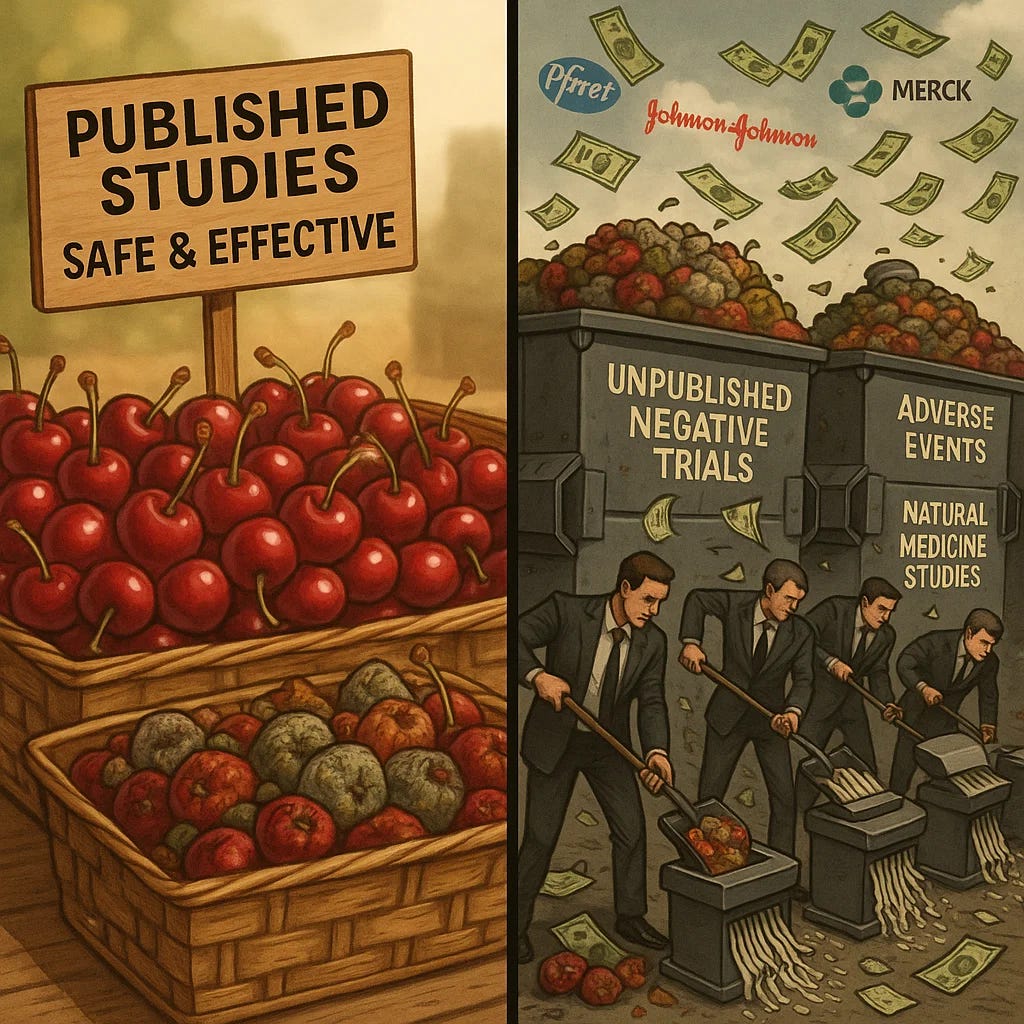
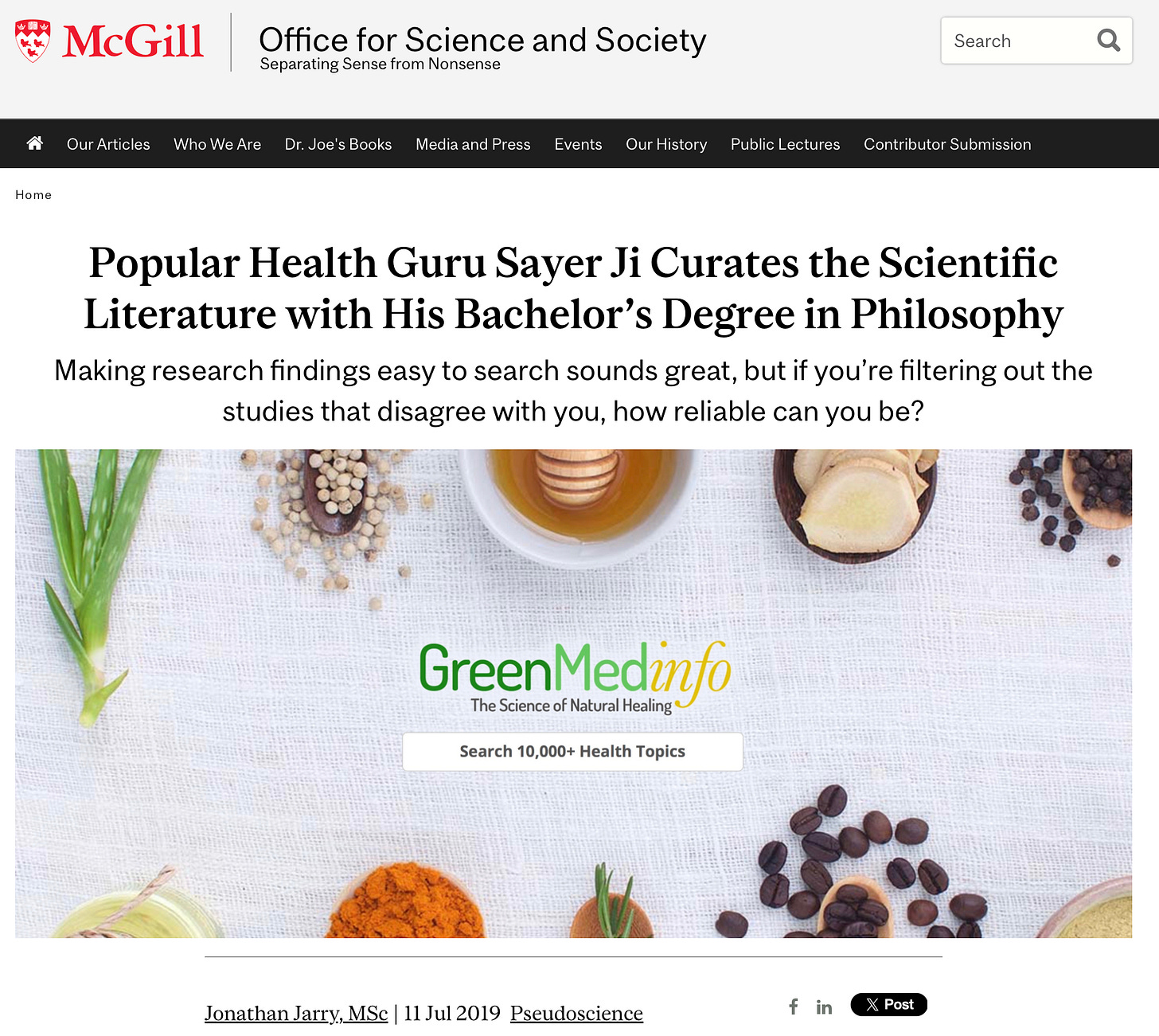
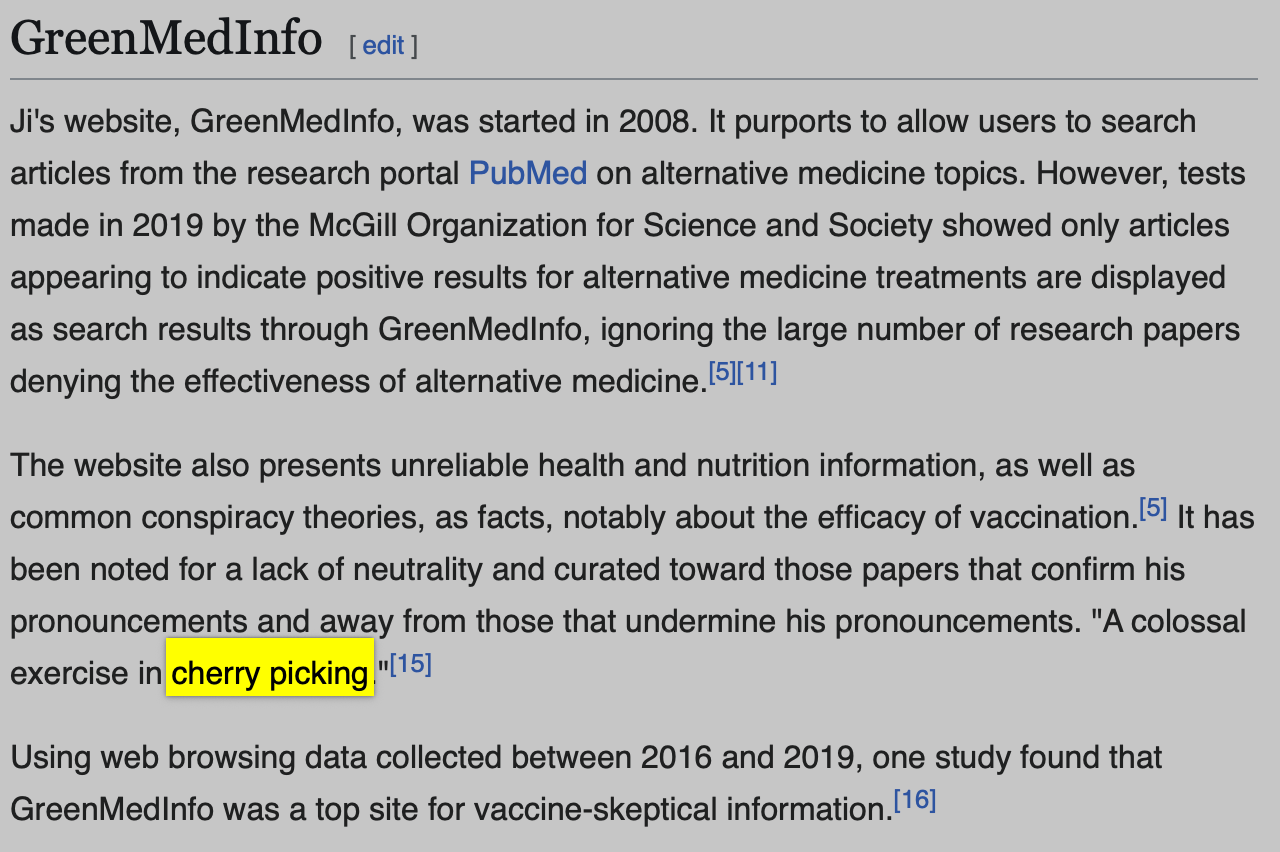
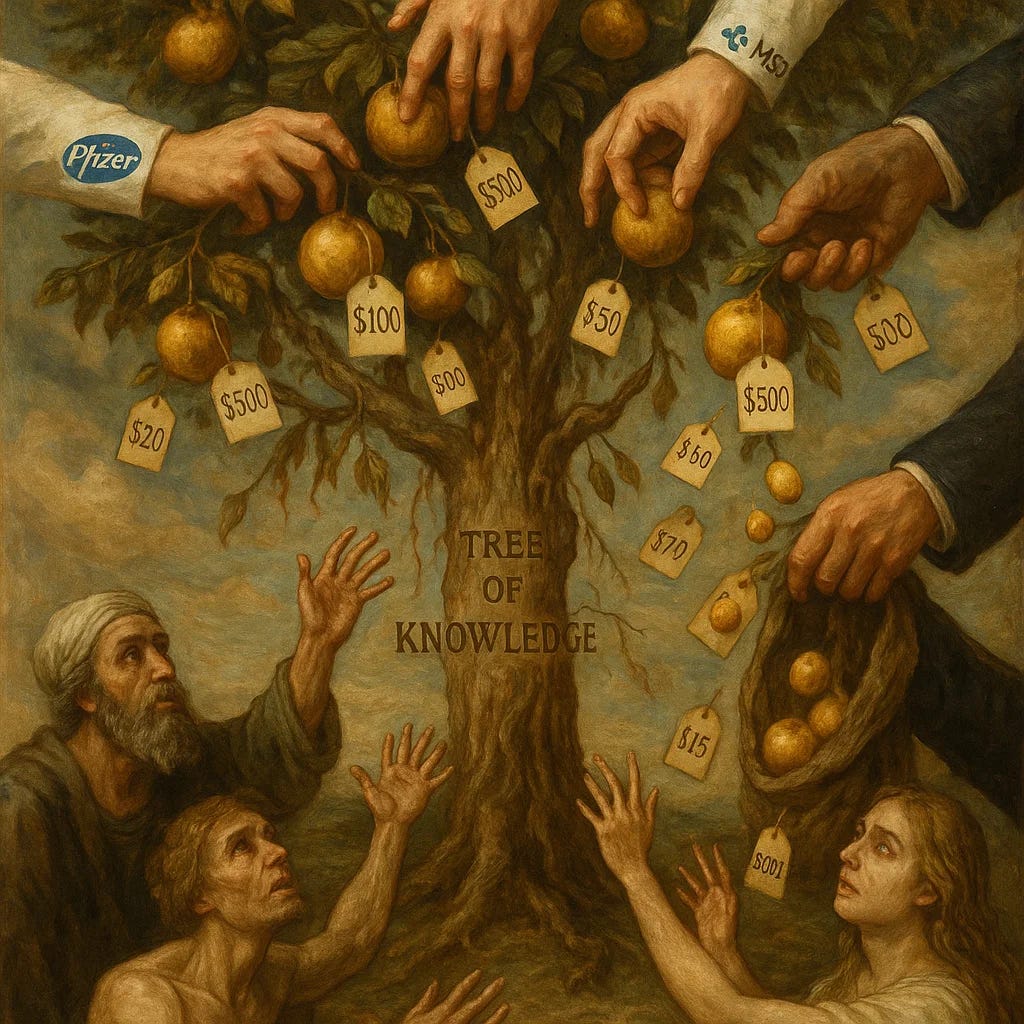
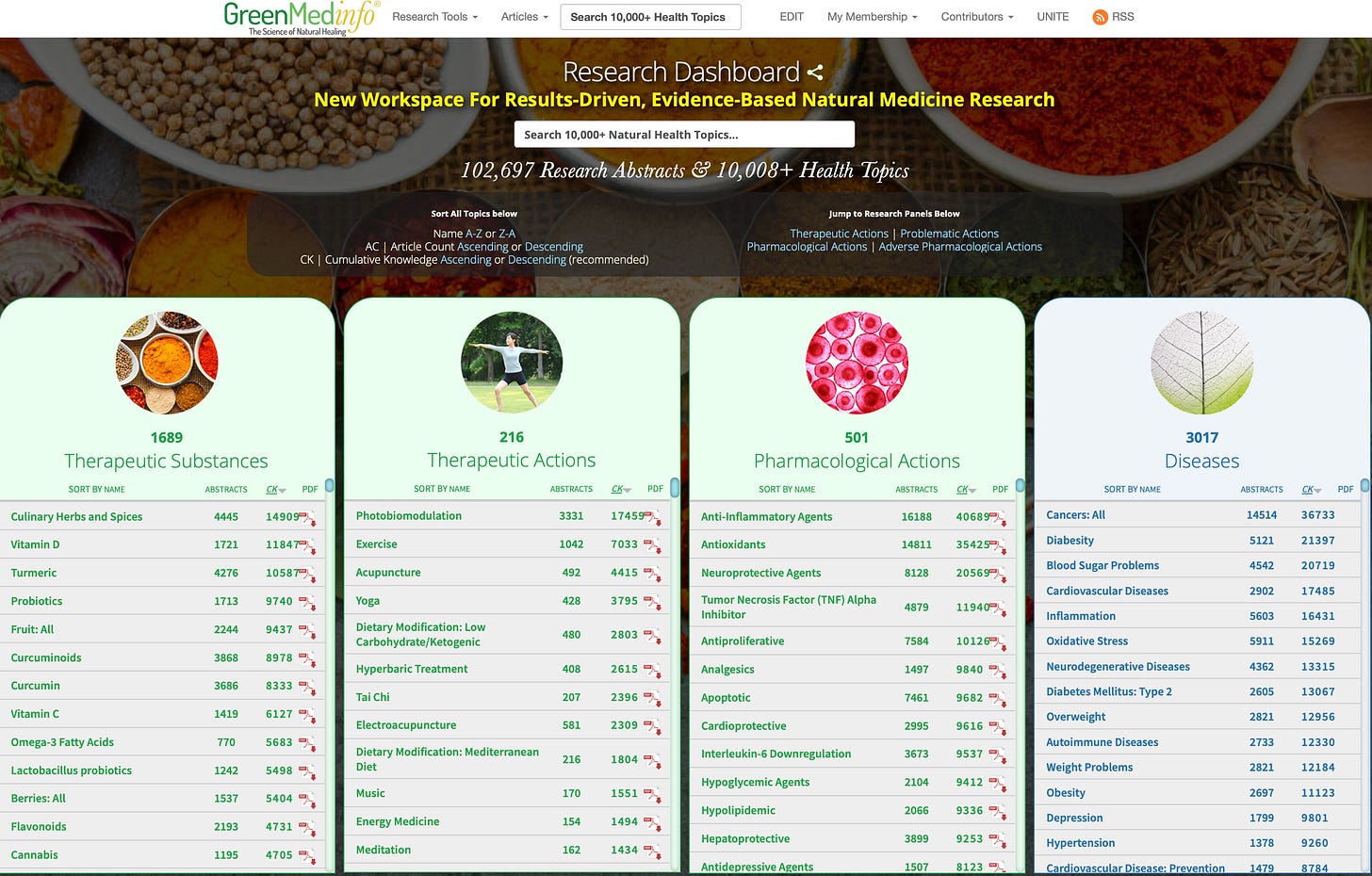

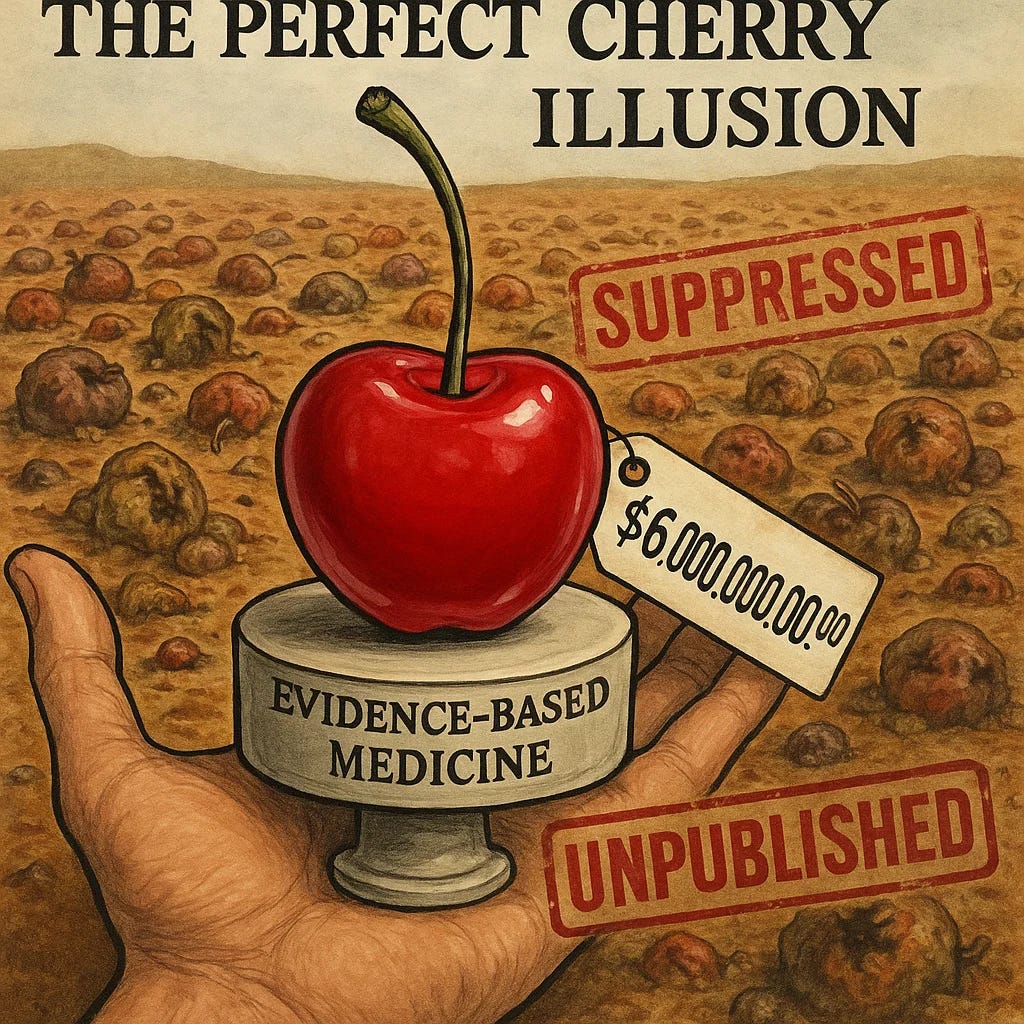
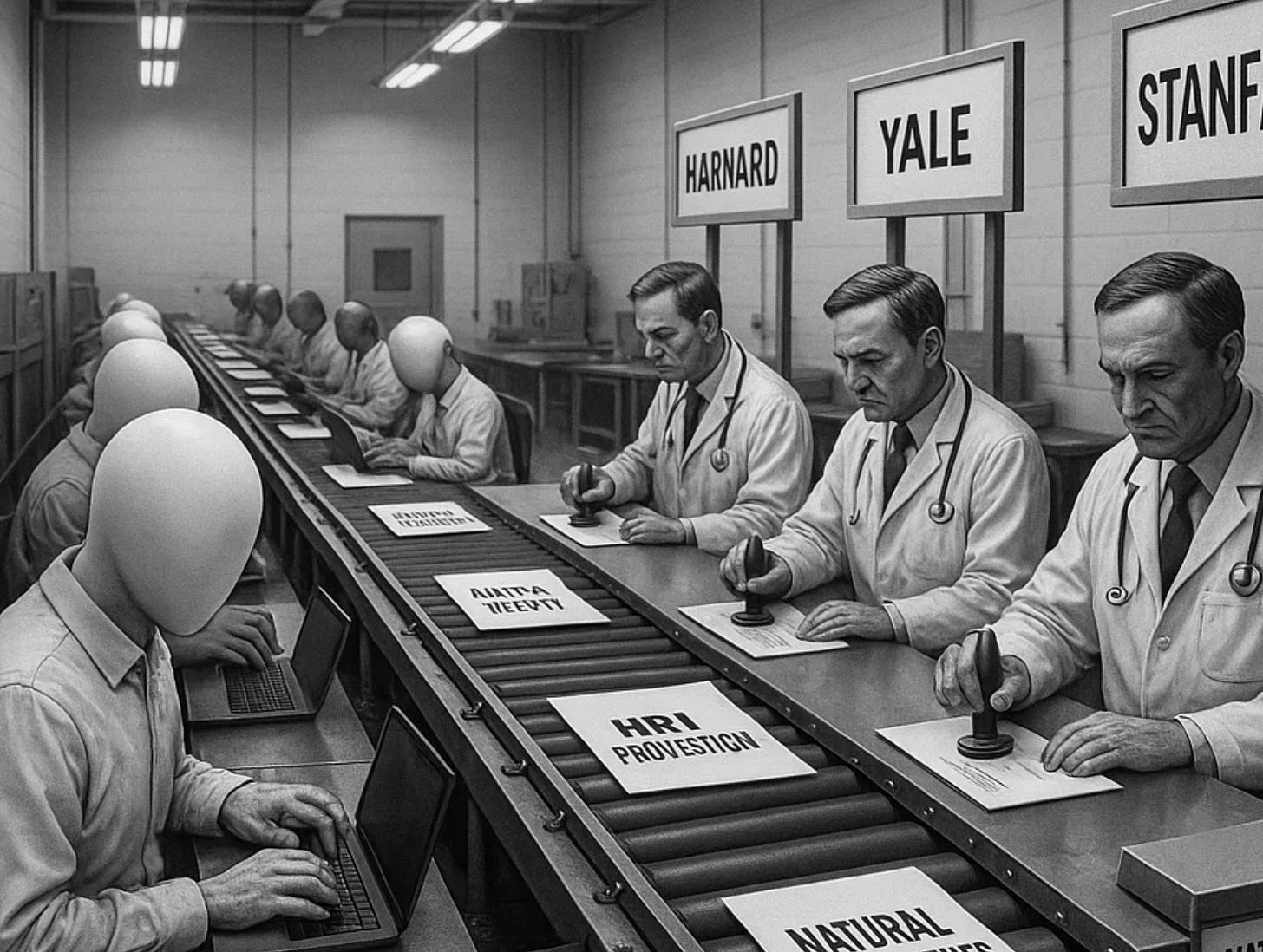
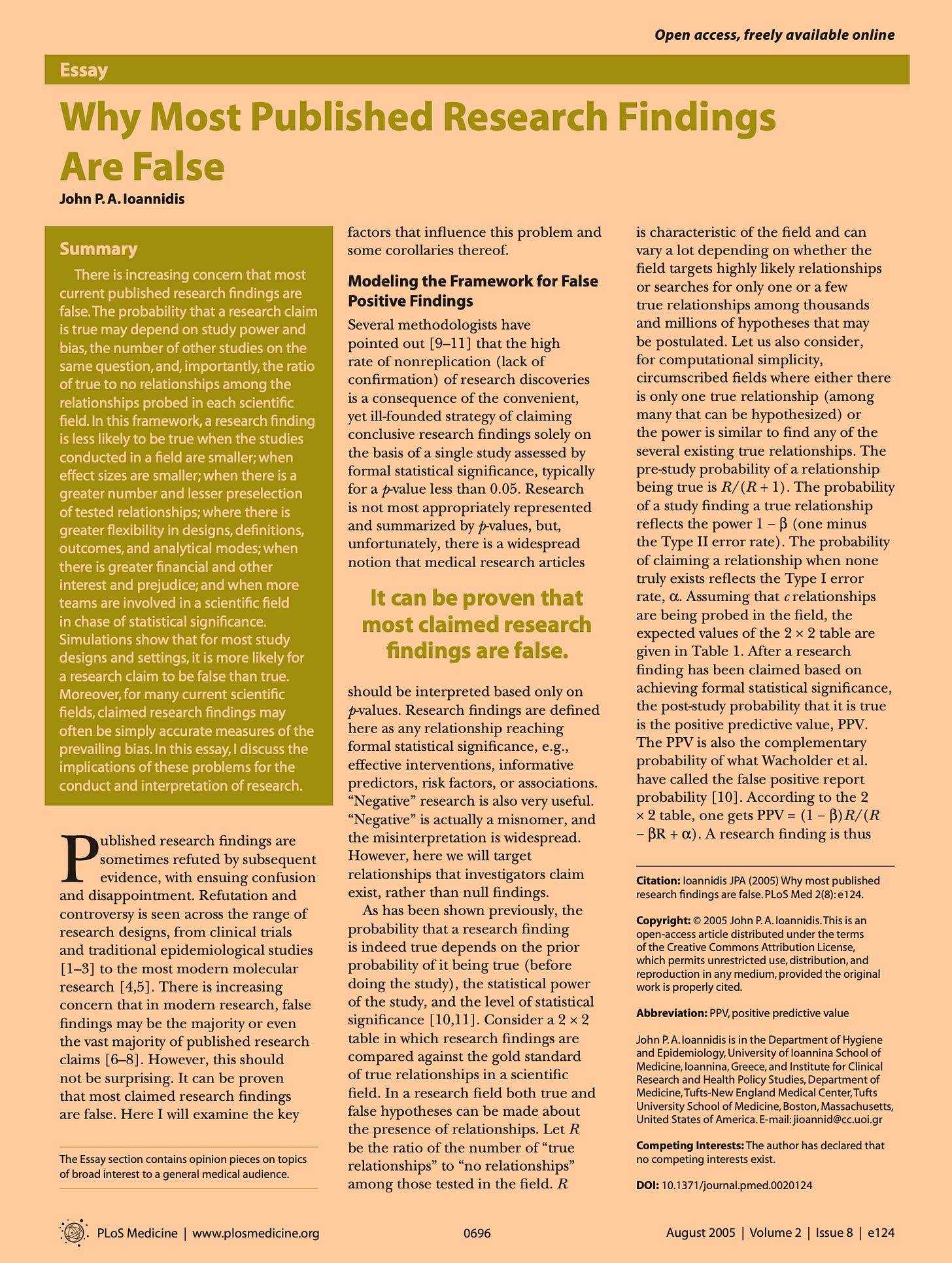
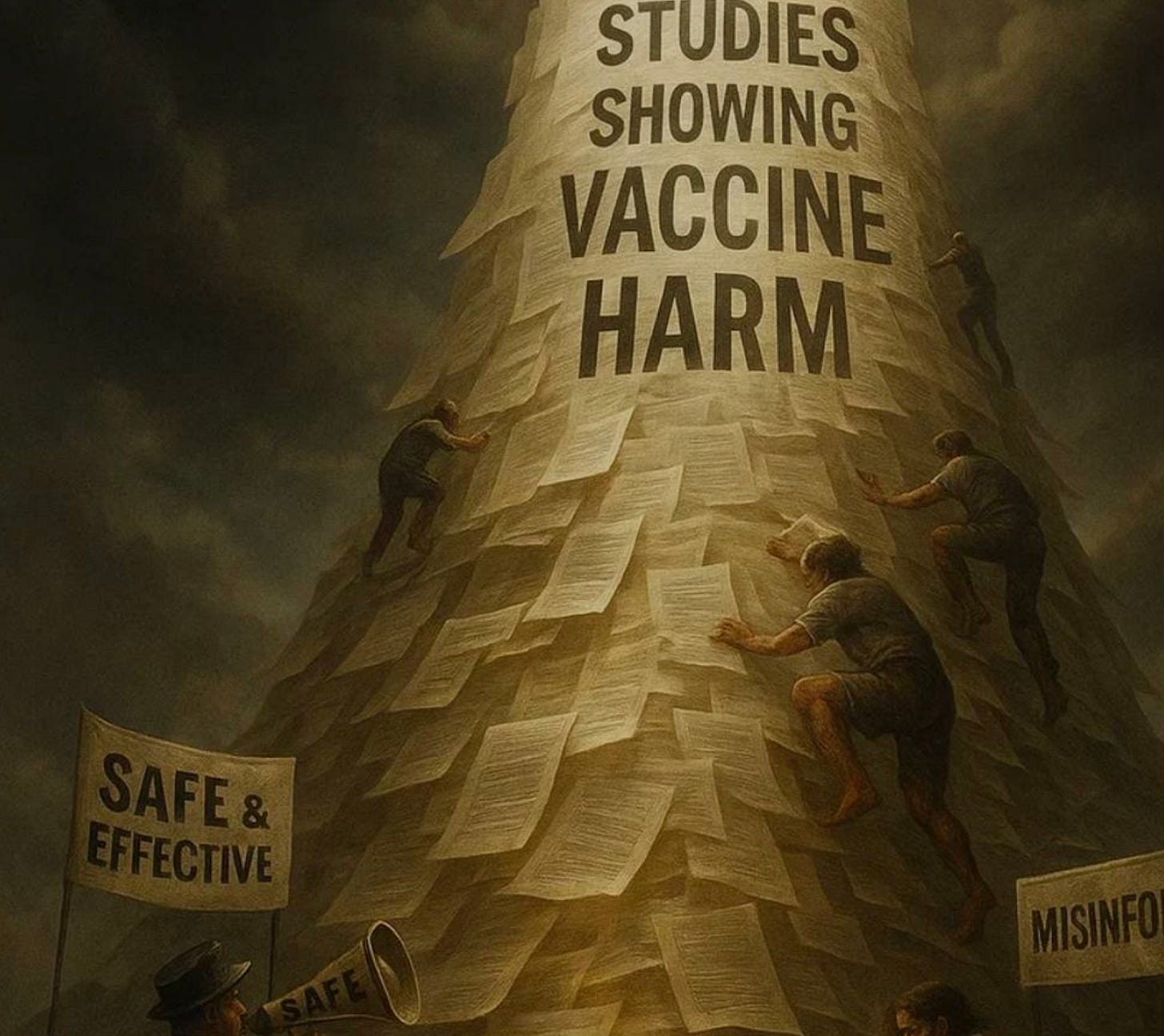
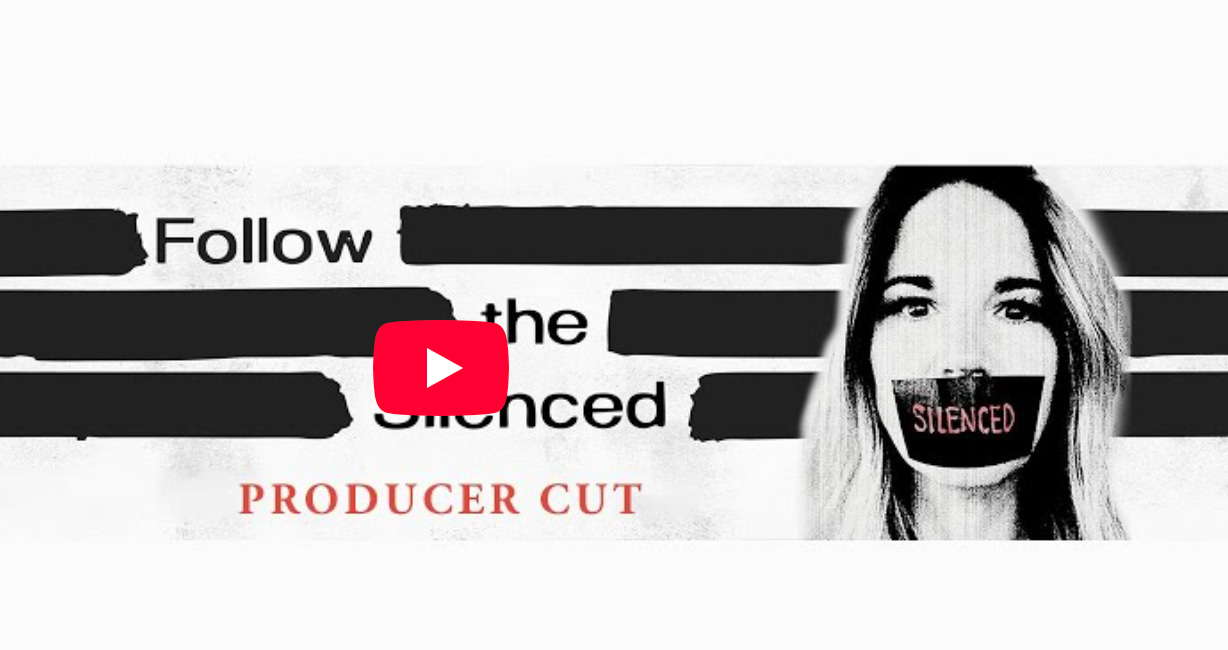
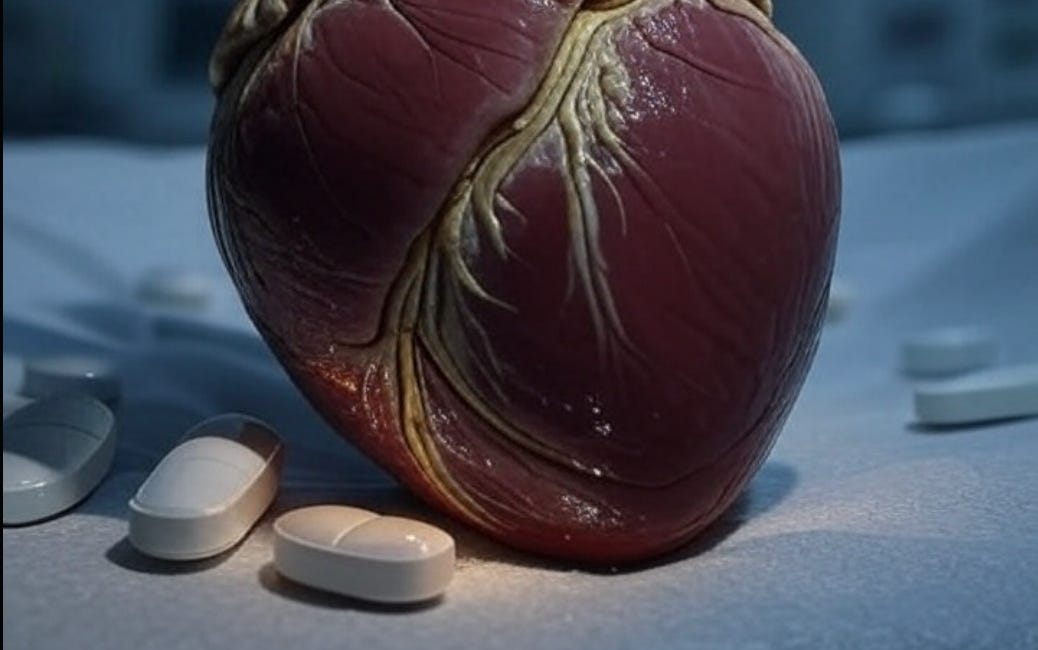
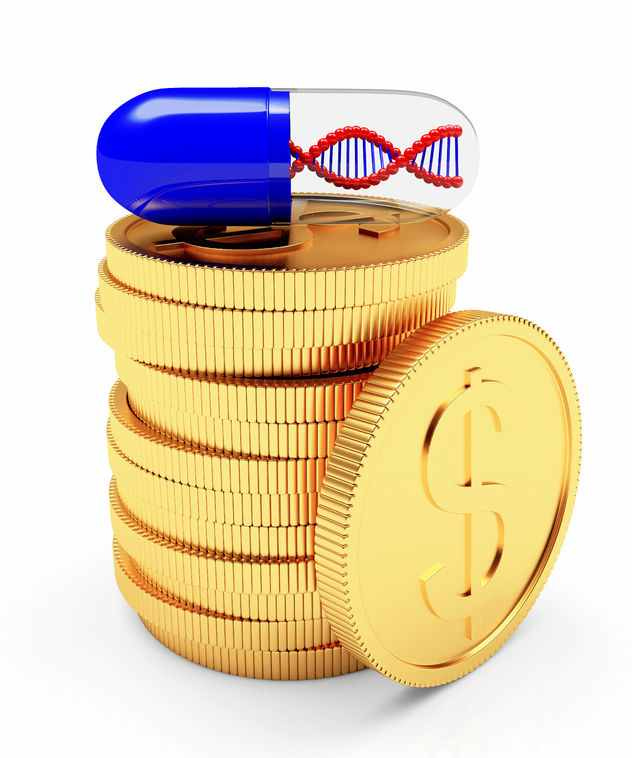

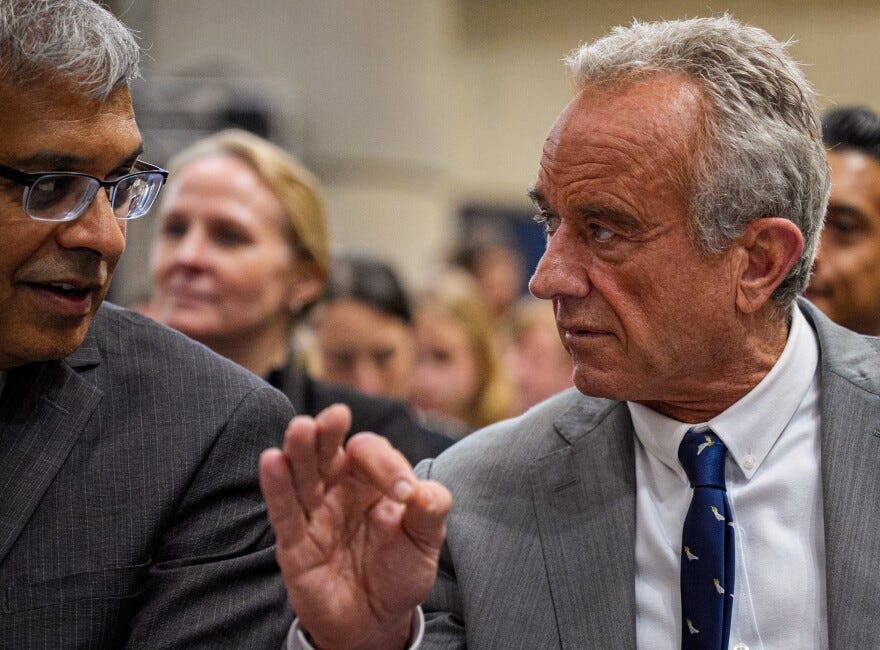
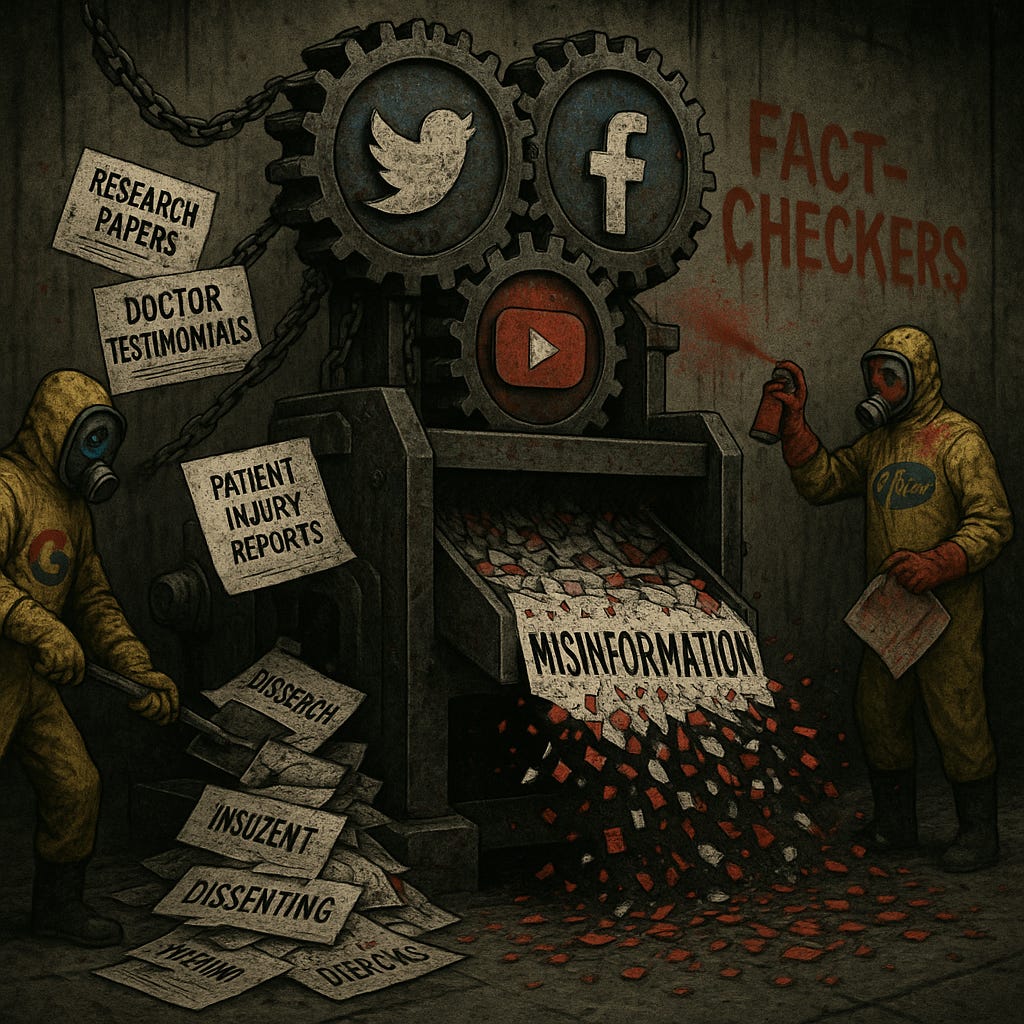
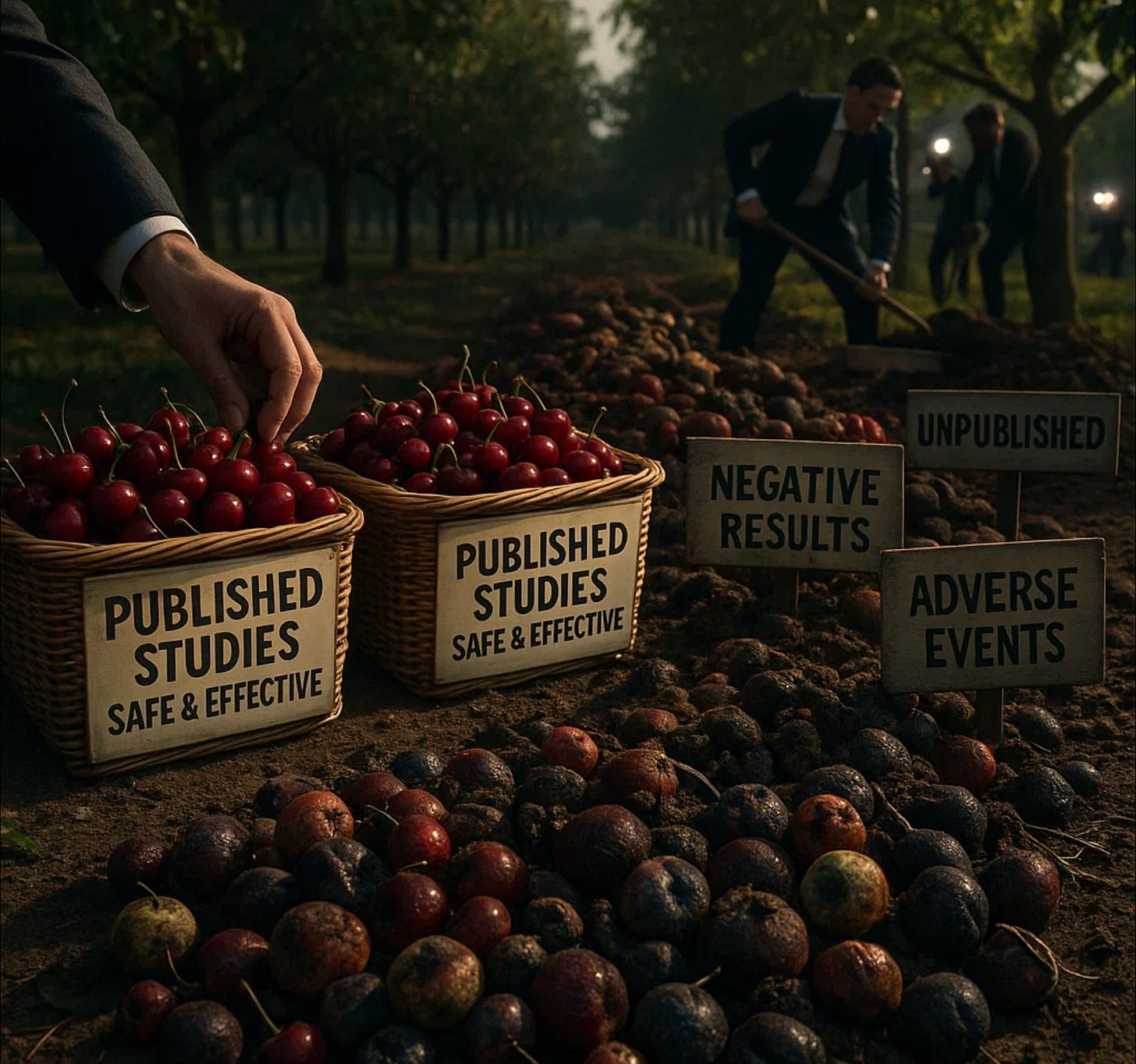
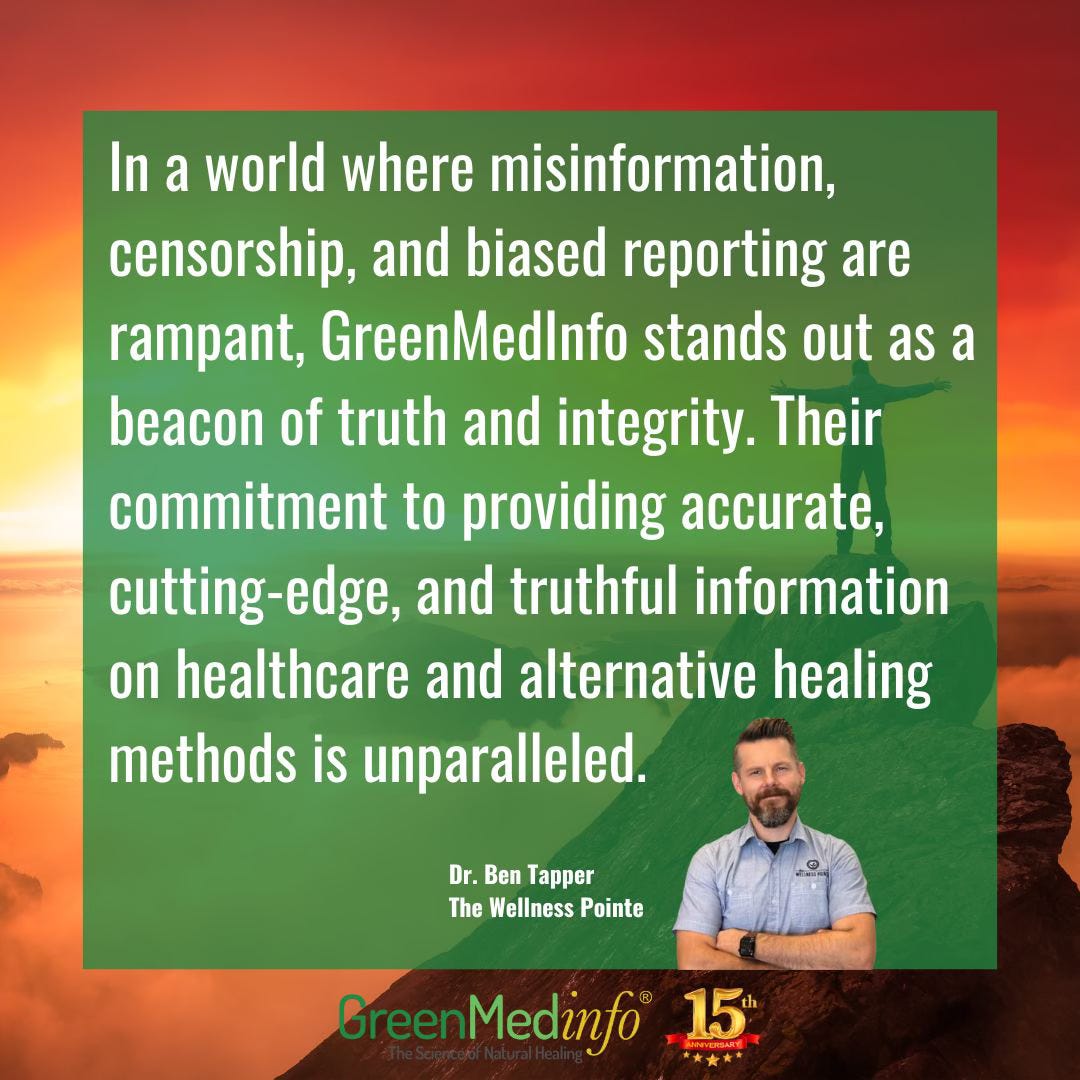
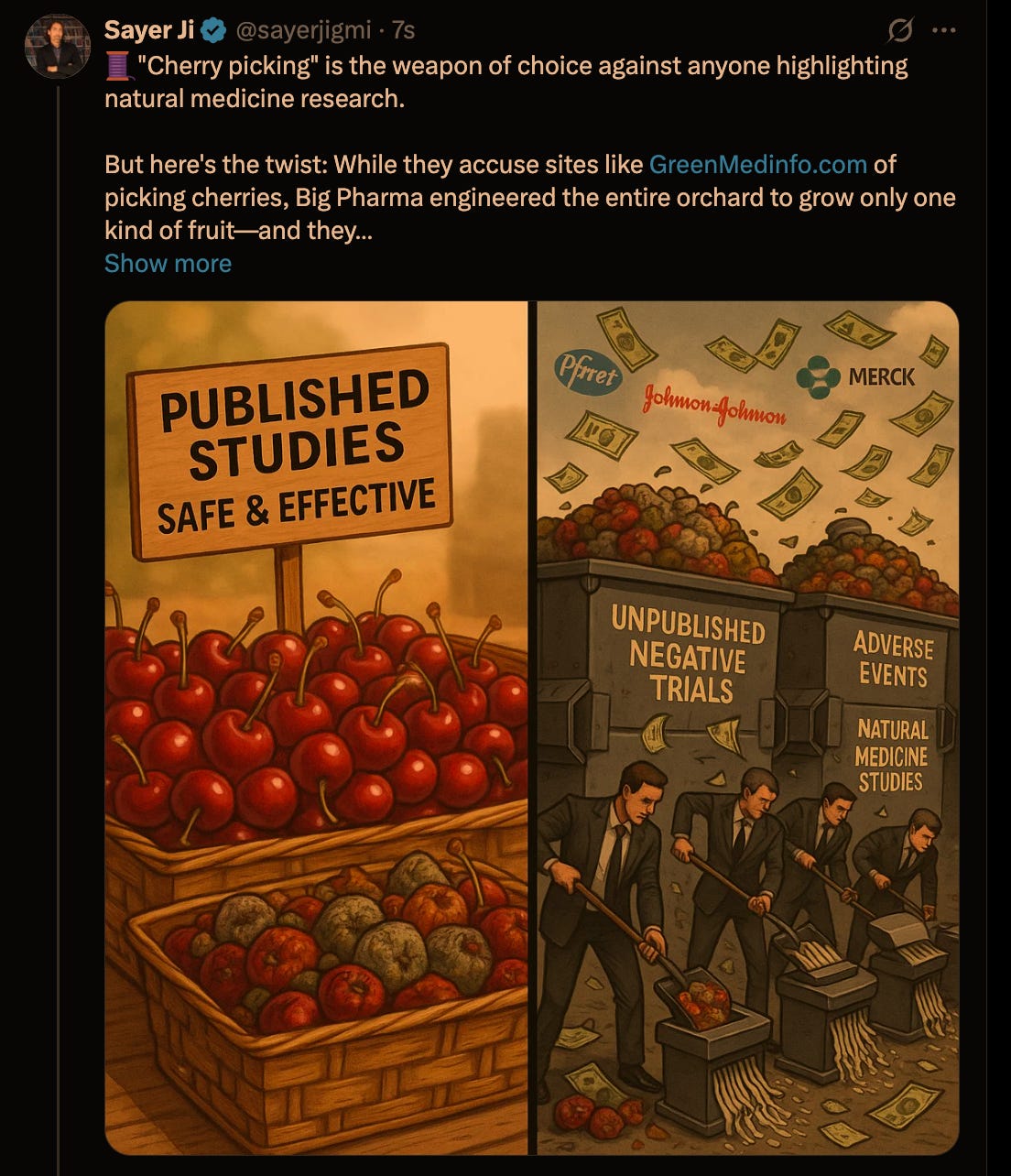

No hay comentarios:
Publicar un comentario